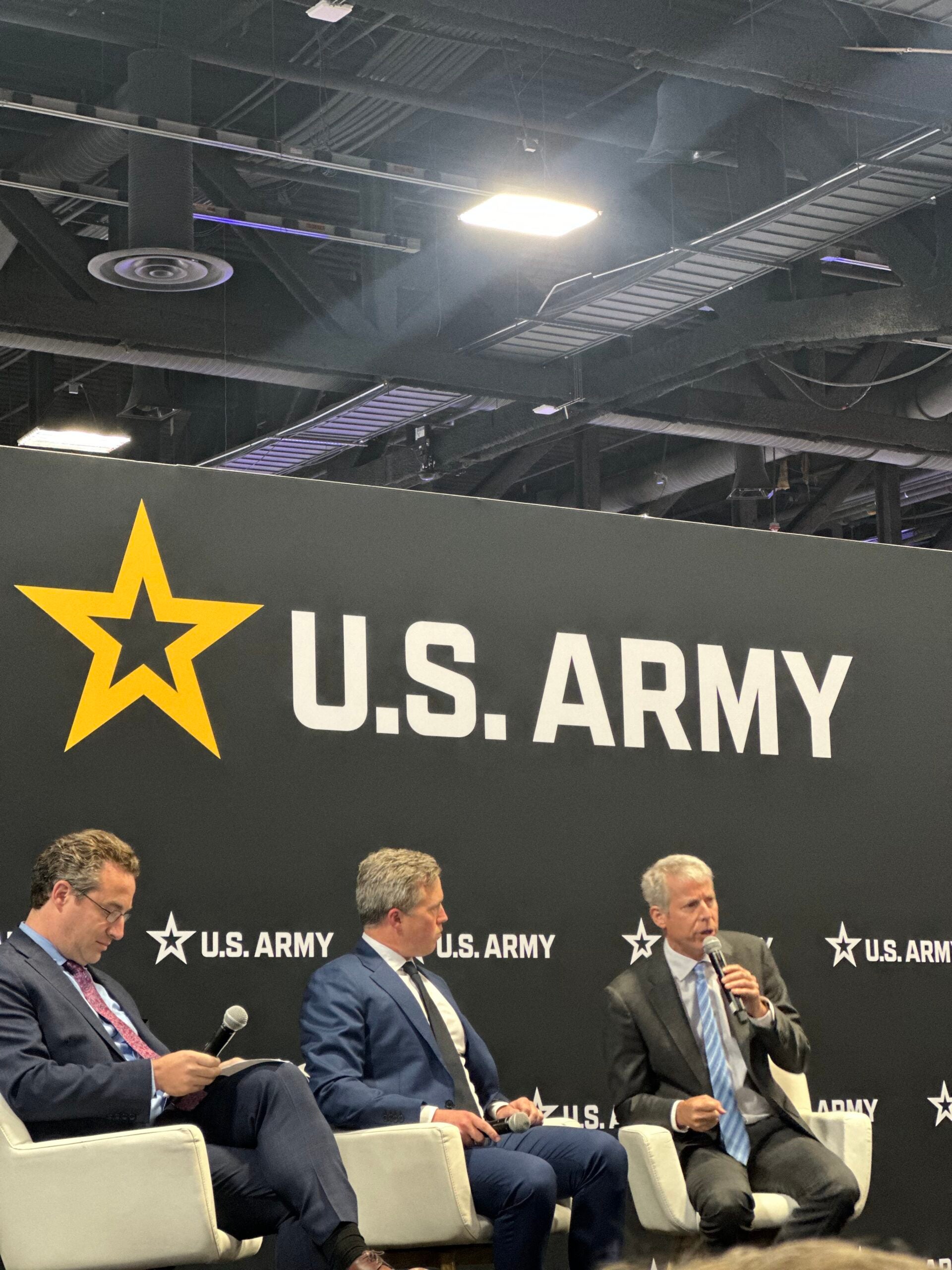
WASHINGTON, D.C. – Secretary of Energy Chris Wright and Secretary of the Army Dan Driscoll announced a new nuclear reactor program Tuesday to deploy microreactors in the military.
Called the Janus program, Wright and Driscoll announced the effort at the 2025 Association of the United States Army (AUSA) conference in Washington.
The announcement heavily referred to President Donald Trump’s four nuclear energy-related executive orders released May 23, one of which involved directing the Department of Defense to operate an Army-regulated nuclear reactor at a U.S. military installation by September 2028.
The Janus program, named after the Roman God of transitions, is intended to move the military “from prototypes to fully commercial nuclear power to provide energy resilience to our soldiers,” Jeff Waksman, principal deputy assistant secretary of the Army for installations, energy and environment,. Waksman’s remarks came while moderating the AUSA panel.
Waksman will oversee Janus. The program will involve commercially-built and -owned transportable microreactors roughly the size of a shipping container, from the private sector. Such units can usually generate up to 20 megawatts of energy.
According to the Army’s press release following the announcement, the Janus program will involve the DoD’s Defense Innovation Unit and the DOE’s national laboratories, specifically Idaho National Laboratory, and the Army will provide technical oversight to the program through its nuclear supply chain and uranium fuel supply chain. The program will also “build on lessons” from Project Pele, the DOE’s demonstration microreactor that will eventually be used by DoD to produce electricity in 2028.
“Since the Manhattan Project, the Department of Energy and the Department of War have forged one of the defining partnerships in American history—advancing the science, engineering, and industrial capability that power our national security,” Wright said, referring to Lt. Gen. Leslie Groves, the Army Corps of Engineers officer who oversaw the Manhattan Project. “What began as a wartime effort became the backbone of America’s peacetime strength. Under President Trump’s leadership, we’re extending that legacy through initiatives like the Janus Program, accelerating next-generation reactor deployment and strengthening the nuclear foundations of American energy and defense.”
Driscoll, referring to the global defense environment and specifically to Ukraine’s Operation Spider Web attack on Russia’s nuclear bombers, said “what all of these new requirements of war, the baseline to actually get them into the field and get them active, is energy and resilience and redundancy.”
“We’re going to need to be able to access power like we have never needed it before, and so Project Janus and this announcement is our first big step toward having the United States Army work with the private sector, work with other verticals of government, and under President Trump’s leadership, push forward nuclear energy for our country,” Driscoll said.
Valar Atomics is a company that has been developing a microreactor in Los Angeles that it’s looking to turn on “early next year” under a pilot program with Wright and the DOE, Valar’s CEO Isaiah Taylor told the Exchange Monitor Tuesday. While requests for proposals will still need to come out in the next couple of months for the Janus program, Taylor said Valar is “officially in progress with the Department of Energy, and we’re excited to start work with the Army on this as well.”
“The form factor of the reactor is exactly what the Army is looking for in deployable microreactors,” Taylor said. “Janus is a great opportunity for us to quickly move this technology from the R&D phase under the pilot program under the Department of Energy into deployment in the field with the Army.”
Taylor said since the focus with the Janus program is on deployment and execution “that we haven’t seen before,” the DOE and Army aren’t “just thinking about, you know, ideas, requirements, this is like, ‘let’s actually go make some power in forward deployed locations.” Waksman echoed this statement at AUSA, saying the program is “going to deliver real hardware, not PowerPoint slides.”
“Making sure that the U.S. military is able to get energy is one of the most important problems you could solve today,” Taylor said, adding the initial target for the microreactors will be to supply energy to base operations at military bases, and the community around the bases, instead of having “vulnerable” local grids supply the power.